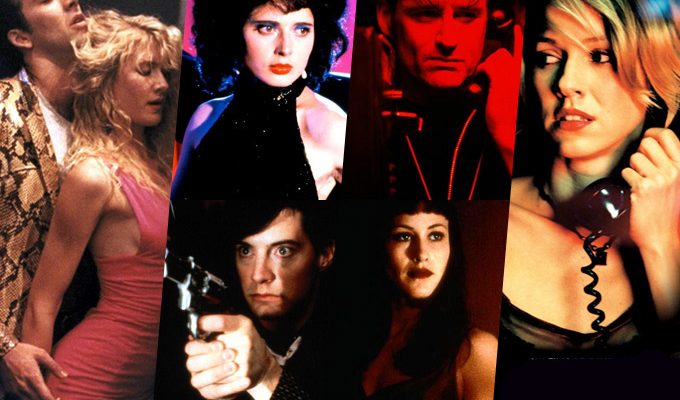If cinema is a drug, then in the special section of its pharmacological spectrum reserved for the hallucinogens, sit the movies of David Lynch. Perched in pride of place among those is “Mulholland Drive,” his glorious 2001 mindfuck that comes this week to the Criterion Collection (surprisingly only his second title to find a home there after “Eraserhead.”) Perfectly in time for Halloween, the film is the sublimation of many of the different impulses that Lynch’s filmography embodies: it’s creepy to the point of uncanny (and it did it take the top spot on our 25 Best Horror Films of the Century list) but it’s also oddly melancholic, beautiful and terrible, unfolding like a dream you can’t wake up from, whose logic impels you forward, and further inward, even though you can’t explain why.
Despite padding his resume with myriad short films, videos, installations, and, erm, nightclubs, Lynch’s reputation as the reigning King of Cult is founded on just ten feature films and one TV show. The latter, the endlessly adored, fascinating, epochal “Twin Peaks” which he co-created with Mark Frost, will return with Lynch writing and directing, for an anticipated third season in 2017 via Showtime. But as for Lynch and movies, well, only time can tell, but nothing he’s said recently indicates any sort of serious desire or intention to return to the medium.
Perhaps that’s the cleverest way that Lynch has made junkies of us all: by throttling down the supply of his “product.” Because they’re not just mind-addling psychotropic substances, his movies are highly addictive, in that once you’ve found your gateway title (for many it was “Twin Peaks” though for the more cinematically inclined it was often “Blue Velvet”) you find yourself quickly jonesing for more. Having made so relatively few features across the four decades of his career, Lynch has more or less guaranteed that the only option for the hooked is to go back and revisit them time and again: thankfully, his is one of the rare catalogues that rewards that practice. Somehow, Lynch’s output seems to continually expand in meaning and character, despite the fact that it remains stubbornly enumerated, since 2006, at an uncharacteristically round, decimal ten titles. Here’s our assessment of those films: administer intravenously.

“Eraserhead” (1977)
Here it is, folks. One of the seminal Midnight Movies, the film that launched David Lynch’s career and gave thousands of horror-happy movie kids nightmares for years, “Eraserhead” remains one of the director’s purest, most playful and vital works. But like many of Lynch’s better films, this one can’t be superficially described in terms of its plot. It must be experienced: you must drink in the inky, alien vibes of Lynch’s otherworldly landscape for yourself, and absorb the movie’s rich, intoxicating allure firsthand. With this, his first feature, Lynch reveals himself as an authentic heir to the throne of cinematic surrealism, alongside filmmakers ranging from Luis Bunuel (“Un Chien Andalou”) to Alejandro Jodorowsky (“El Topo”). The movie also marked the beginning of several relationships with what would turn out to be long-term collaborations, like with “Blue Velvet” D.P. Frederick Elmes, famed production designer Jack Fisk and actor Jack Nance, who also appeared in Lynch’s landmark T.V. series “Twin Peaks.” The plot involves a lonely, withdrawn man’s efforts to care for a mutant offspring – a hissing, horrific thing with an eerily blank face and wriggling tentacles – in a harsh, imposing industrial cityscape, but story is the last thing on Lynch’s mind with “Eraserhead”. Through the film’s murky black and white cinematography and the haunting organ songs by Fats Waller that are peppered throughout the soundtrack, Lynch evokes the feeling of being trapped in a world between the real and the uncanny. His later films are more fleshed out, and go deeper in their penetration of unconscious fears, but “Eraserhead” is still a remarkable feat: it is an artful elegy for the freaks we all harbor, a nighttime tone poem to the darker sides of our psyches and the introduction of one of cinema’s most radical and uncompromising directors to the world.

